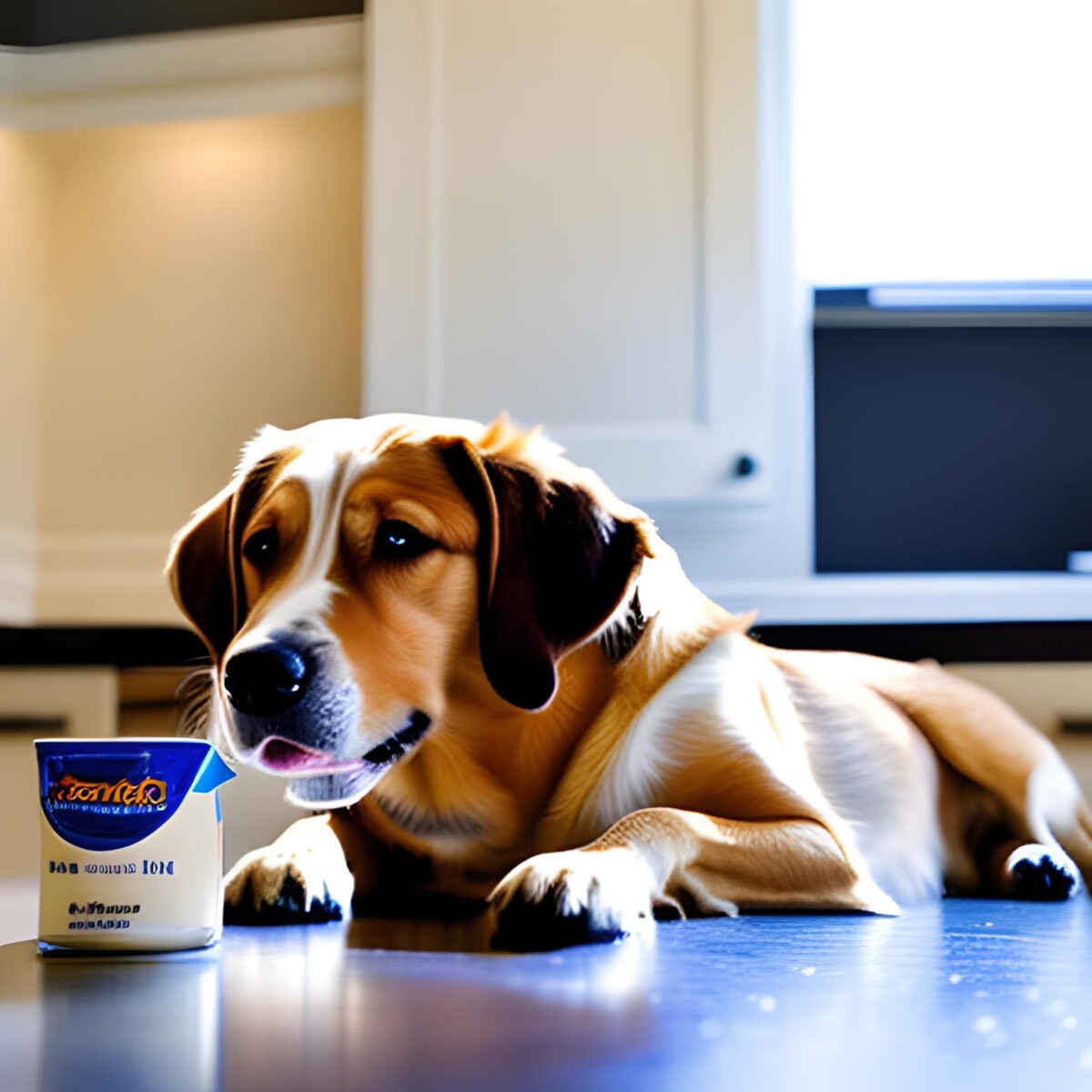When feeding our furry friends, we want only the best.
One question that often pops up in pet owners’ minds is, “Can dogs eat yogurt?”
The answer isn’t a simple yes or no.
In this article, we’ll explore the benefits and potential concerns of feeding yogurt to dogs, how to do it safely, and some delicious ways to incorporate yogurt into their diet.
Can Dogs Eat Yogurt?
Yes, dogs can eat yogurt in moderation. Plain, unsweetened yogurt can be a good source of probiotics and protein for dogs. Avoid yogurt with added sugars or artificial sweeteners. Always consult your vet before introducing new foods to your dog’s diet, and start with a small amount to ensure your dog tolerates it well.
Some dogs are lactose intolerant, which means dairy products can upset their stomachs. Before introducing yogurt, ensure your dog doesn’t have any adverse reactions.
Can Dogs Eat Yogurt: Table of Contents
Benefits of Yogurt for Dogs
Yogurt is a good source of protein, calcium, and probiotics.
Probiotics promote gut health, aiding digestion and boosting the immune system. The live cultures in yogurt can be especially beneficial for dogs with digestive issues.
Yogurt contains essential nutrients like calcium, vitamin D, and protein.
Calcium supports bone health, while protein assists in muscle maintenance.
Opt for plain yogurt without added sugars or artificial sweeteners.
Choosing the Right Yogurt
Look for yogurt with live and active cultures for probiotic benefits.
Greek yogurt is often a good choice due to its higher protein content. Avoid yogurts with additives like xylitol, chocolate, or artificial flavorings.
Plain vs. Flavored Yogurt
Plain, unsweetened yogurt is the safest option for dogs. Flavored yogurts can contain excess sugars and artificial ingredients unsutable for canine consumption.
Introducing Yogurt to Your Dog’s Diet
Start by offering a small amount of plain yogurt as a treat. Monitor your dog for any digestive issues or allergies. If they tolerate it well, you can incorporate yogurt into their meals.
Serving Size and Frequency
The appropriate serving size depends on your dog’s size and weight. As a general guideline, small dogs can have a teaspoon, while larger dogs can have a tablespoon of yogurt a few times a week.
Potential Risks and Concerns
While yogurt can be safe, keep an eye out for signs of lactose intolerance, such as diarrhea or vomiting. If your dog is lactose intolerant, consider lactose-free yogurt or skip yogurt altogether.
Yogurt Treat Recipes for Dogs
Frozen Yogurt Bites:
Mix plain yogurt with dog-friendly fruits like bananas or blueberries. Freeze into bite-sized treats.
Yogurt Peanut Butter Dip:
Blend yogurt with natural peanut butter for a tasty dipping sauce for dog biscuits.
Alternatives to Yogurt
If your dog is lactose intolerant or simply not a fan of yogurt, consider other options like lean meats, eggs, or dog-friendly fruits and veggies.
Before making any significant changes to your dog’s diet, consult your veterinarian. They can provide personalized advice based on your dog’s individual health needs.
Vet Q&A
Can puppies eat yogurt?
Puppies can eat yogurt in moderation, but it’s best to consult your vet first.
Is Greek yogurt safe for dogs?
Yes, Greek yogurt is safe and often a better choice due to its higher protein content.
Can dogs with allergies eat yogurt?
Dogs with allergies should have yogurt without added ingredients that trigger allergies.
Is frozen yogurt safe for dogs?
Yes, frozen yogurt treats can be a refreshing snack for dogs in warm weather.
Can lactose-intolerant dogs eat yogurt?
Lactose-intolerant dogs may experience digestive issues with yogurt; consider lactose-free options.
My Senior Paws is a participant in the Amazon Services LLC Associates Program, an affiliate advertising program designed to provide a means for sites to earn advertising fees by advertising and linking to Amazon.com. We also participate in other affiliate programs which compensate us for referring traffic.




